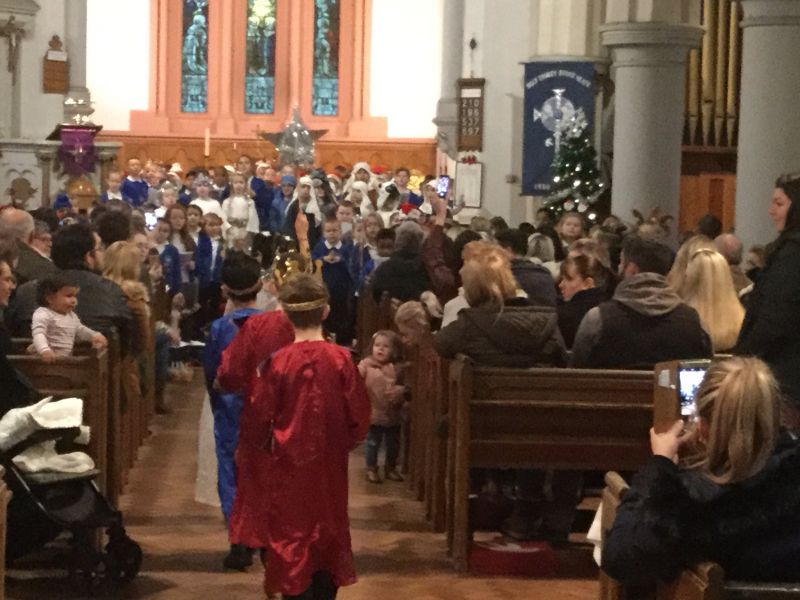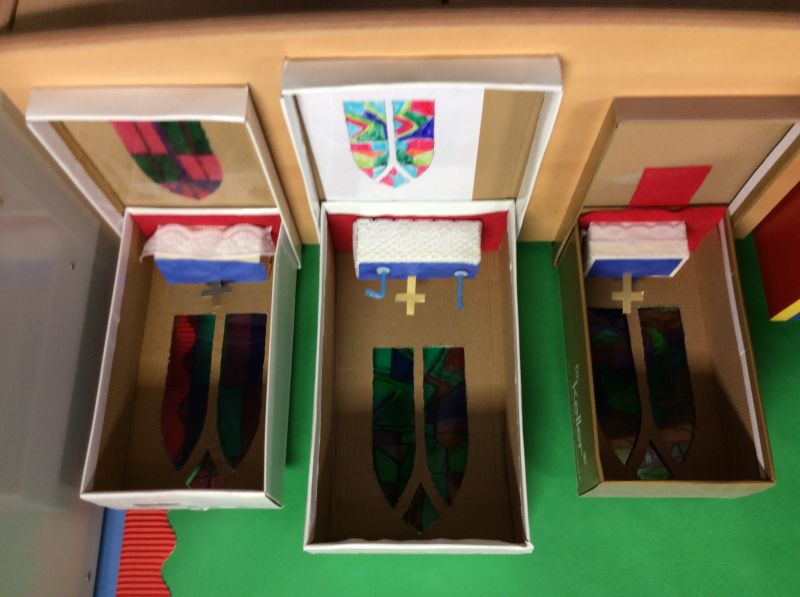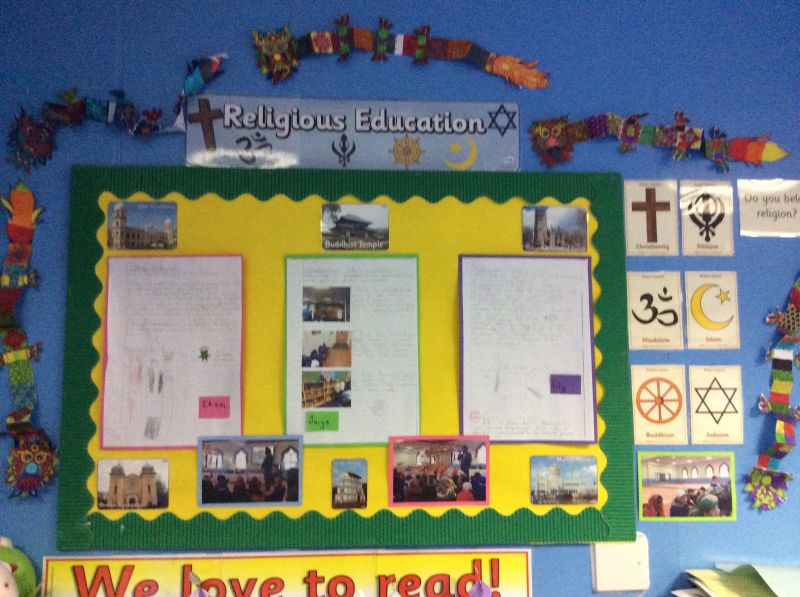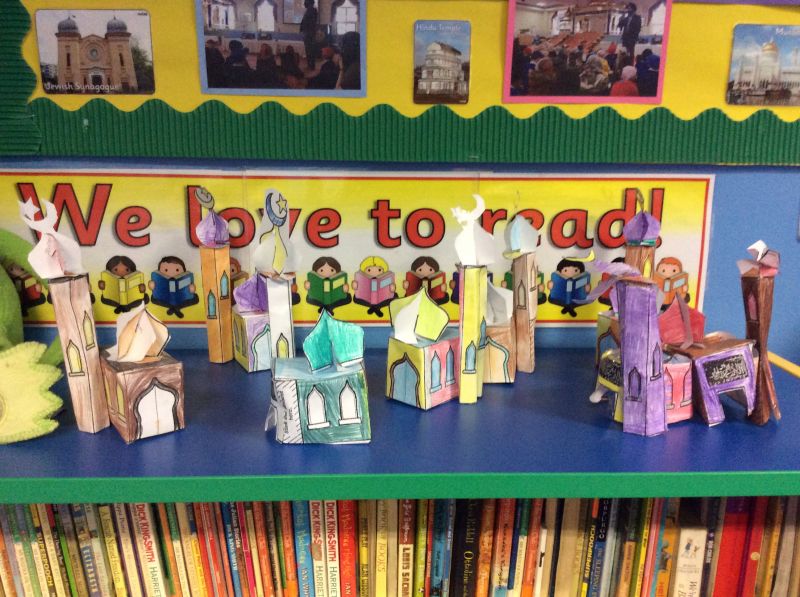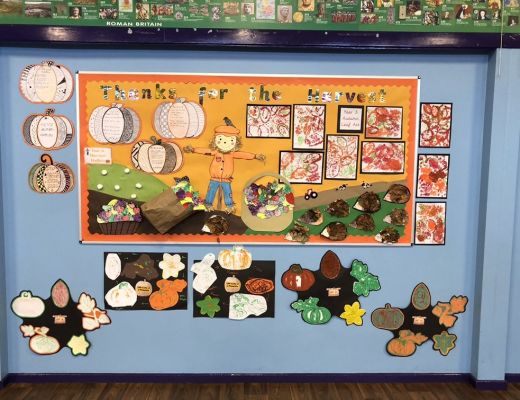Religious Education
Intent
'In RE we think rigorously, creatively, imaginatively and respectfully about our ideas in relation to religions and world views.'
Religious Education contributes dynamically to our children's education in schools, provoking challenging questions about human life, beliefs, communities and ideas. In RE pupils learn from religions and world views (as well as non-religious world views) and about different ways of life in local, national and global contexts.
They discover, explore and consider many different answers to questions about human identity, meaning and value. They learn to weigh up for themselves the value of wisdom from different communities, to disagree respectfully, to be reasonable in their responses to religions and world views and to respond by expressing insights into their own and others' lives.
Implementation
During Key stage 2 pupils should be taught the knowledge, skills and understanding through the following areas of study:
The Themes of Key Stage 2 RE
- Beliefs and questions: how people's beliefs about God, the world and others impact on their lives.
- Teachings and authority: what sacred texts and other sources say about God, the world and human life.
- Worship, pilgrimage and sacred pictures: where, how and why people worship, including at particular sites.
- The journey of life and death: why some occasions are sacred to believers, and what people think about life after death.
- Symbols and religious expression: how religious and spiritual ideas are expressed.
- Inspirational people: figures from whom believers find inspiration.
- Religion and the individual: what is expected of a person in following a religion or belief.
- Religion, family and community: how religious families and communities practise their faith, and the contributions this makes to local life.
- Beliefs in action in the world: how religions and beliefs respond to global issues of human rights, fairness, social justice and the importance of the environment.
Experiences and opportunities
- Encountering religion through visitors and visits to places of worship, virtual visits using ICT and focusing on the impact and reality of religion on the local and global community.
- Discussing religious and philosophical questions, giving reasons for their own beliefs and those of others.
- Considering a range of human experiences and feelings.
- Reflecting on their own and others' insights into life and its origin, purpose and meaning.
- Expressing and communicating their own and others' insights through art and design, music, drama, dance and ICT.
- Developing the use of ICT for RE, particularly in enhancing pupils' awareness of religions and beliefs globally.
Pupils will learn about at least three religions, we study Christianity in each year group and either Islam, Sikhism, Hinduism.
Impact
Our Religious Education curriculum aims to teach and prepare our pupils for their tomorrow. We encourage children to ask thought provoking questions and develop ways of expressing meanings. Children gain knowledge of a variety of religious practices and ways of life, as well as non-religious world views, allowing them to gain an understanding about people different to themselves. We support children in developing tolerance towards others and have the skills and attitudes they will need throughout their lives.
Supporting SEND in Religious Education
Throughout our school, we ensure that all children are given the opportunity to explore religious and non-religious worldviews and other cultures within the local area, the British Isles and that of the wider world. Lessons are planned to provide rich and meaningful activities that allow all children access to the learning. We ensure that we vary our teaching styles to suit the children in the class through visual aids, hands on learning, auditory clips as well as discussion and simplification of language where needed. Within the subject, we have a wide range of resources to support the learning both inside and outside of the classroom environment.
Within our school, we have a wide range of religious artefacts linked to all of the topics that we study, which enable the children to have a ‘hands on’ approach. Within the classroom setting, teachers and support staff are vital within RE lessons and work closely with the class to ensure that the children are being given the best chance possible to develop their religious, non-religious and cultural knowledge and are given opportunities to share their views, opinions and experiences of different religions and cultures. Children have the opportunity to use different aids to record their ideas, whether this be through videos, Seesaw, photographs or group activities.
|
|
|
|
|
|
|
|

